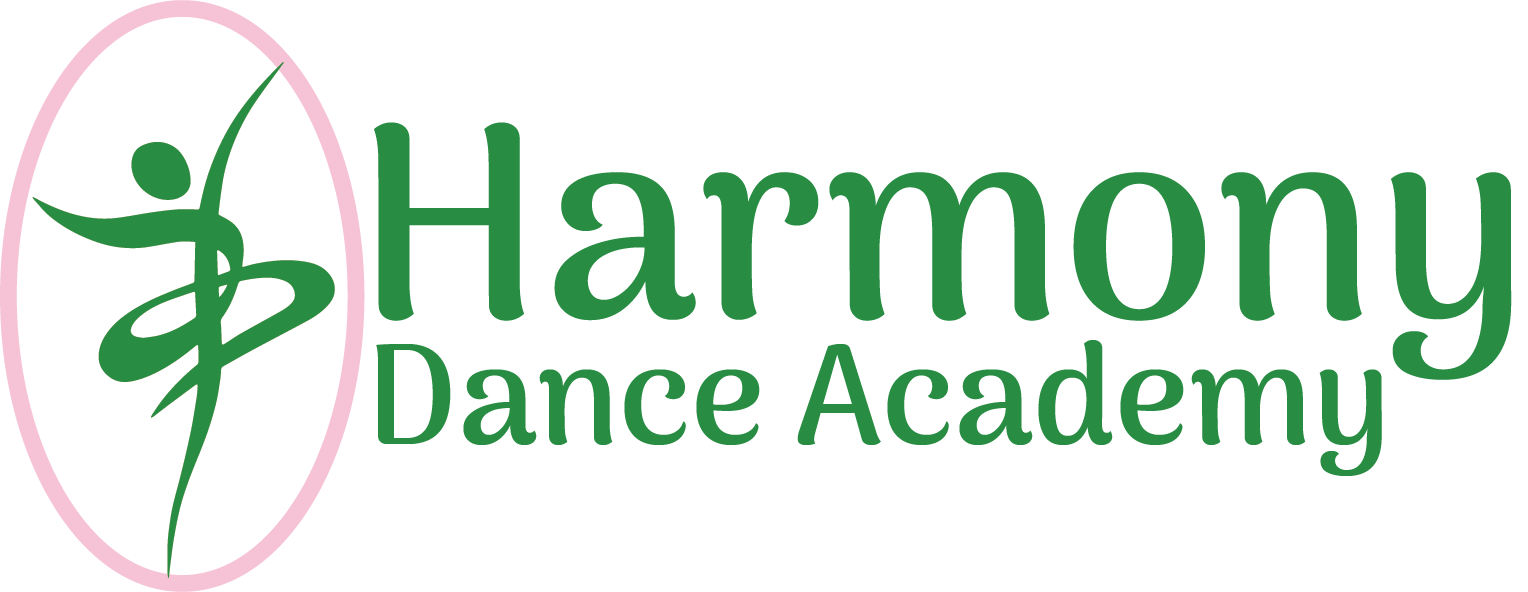Our Philosophy
Our studio policies & procedures are designed to ensure that every member of the studio is treated fairly, consistently and safely. Our goal is to ensure that each and every dancer has the opportunity to become their best, in dance and in life. To help them achieve what they are capable of, we combine high caliber training with a kind and nurturing environment. We expect all of our dancers, and their families, to uphold the highest standards of behavior that support this philosophy.
For the Dancer . . .
Dancing is for Everyone
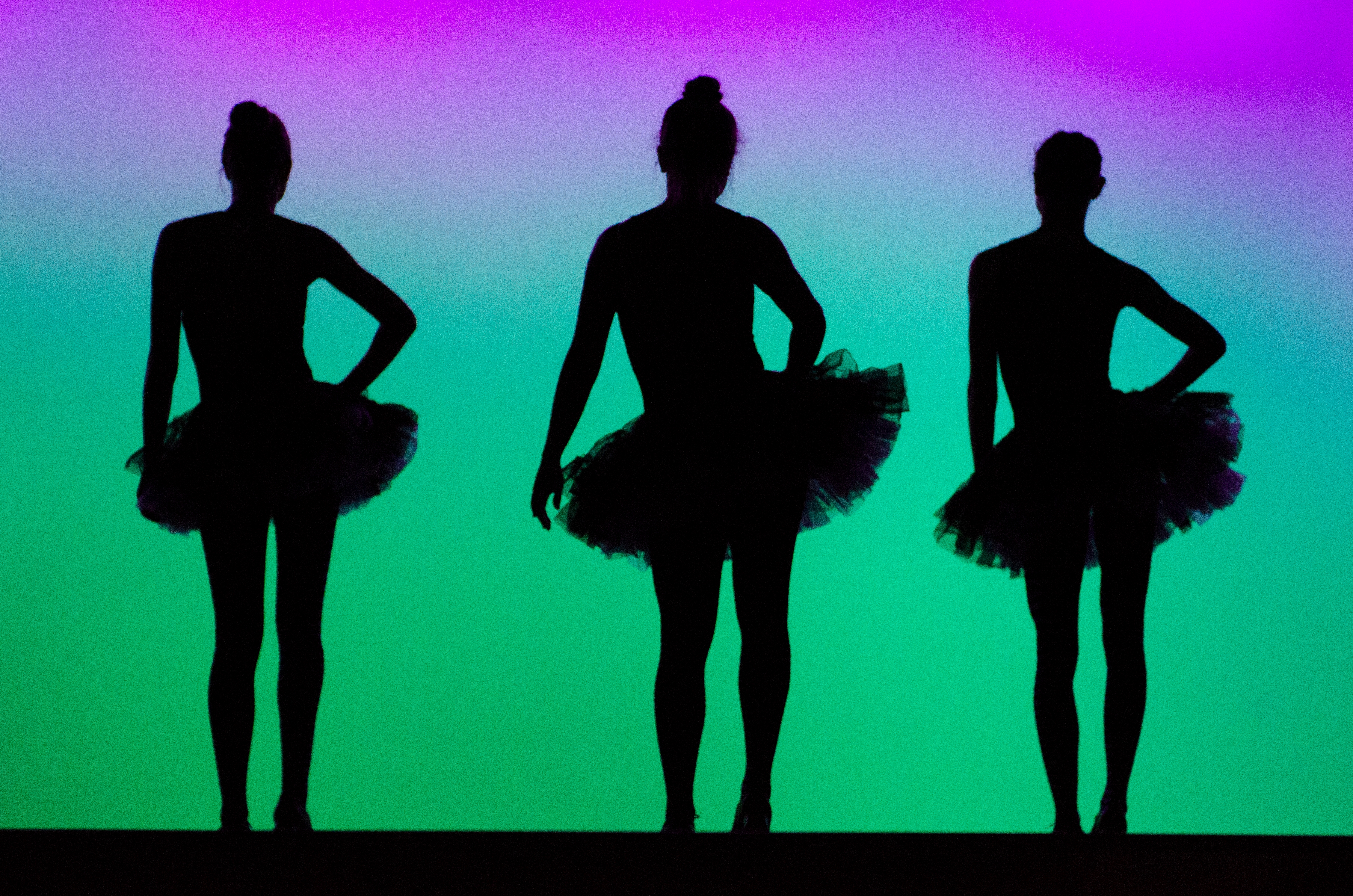

It is never too early or late to dance.
Children are born dancers and most will thrive with the right teacher and environment. Dancing helps children establish a good body image while building strong posture and may aid in regulating weight. Dance classes offer a chance to make new friends, build social skills and even help bring parents together. There is mounting evidence that Dance also entails learning about spatial relationships which can help in reading, writing and mathematics. The US Commissioner of Education has urged that Dance be permanently incorporated into the public school curriculum due to its many physical and mental benefits.
Dancing is also for the young at heart. At any age, dancing is a fun, usually low-impact exercise which helps to regulate weight, maintain or increase flexibility and increase overall body tone and health. Many dancers continue to experience the joy of dancing well into their 60’s, 70’s and beyond.
You are a unique dancer.
All great dancers have a one-of-a-kind quality that makes whatever they do unforgettable. Just as no two people have the same fingerprint, no two dancers look or move exactly alike. Success, whether for yourself or before an audience, depends to a great extent on how effectively you can make your unique qualities of body, mind and spirit work for you. Your goal should be to become the best YOU that you can be.
Your First Day of Class
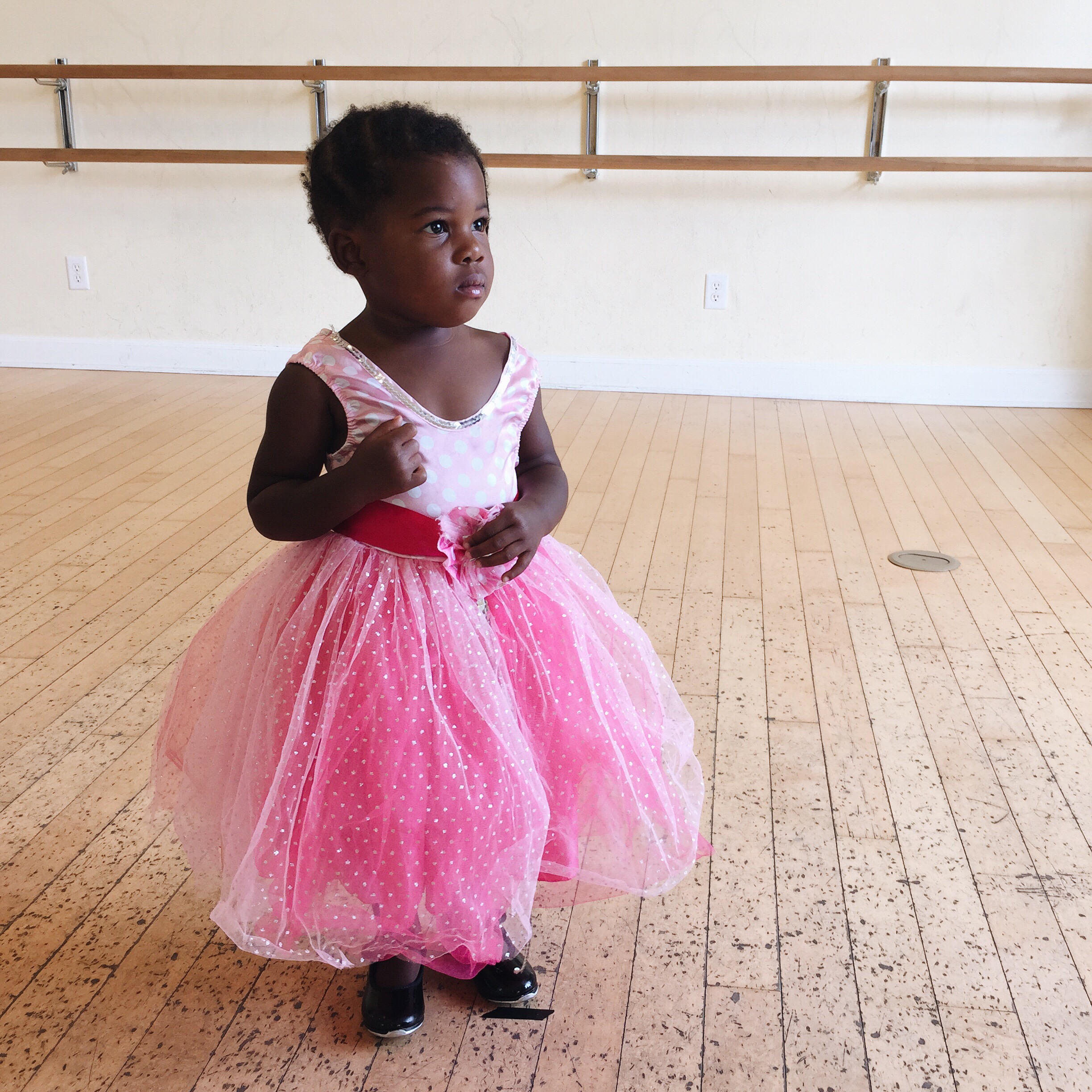

On your first day of class it’s natural to feel a little nervous. Try to relax and remember that everyone else is, or was, just as nervous as you are. On the first day of class you will get to know the everyone and you will be introduced to the class structure and may even learn a few steps.
For our younger dancers, you are invited to participate in the class but it is okay to sit down and just watch if you ever feel uncomfortable. Gradually, you will become familiar with the class, routine and other dancers. You will likely even make a few new friends!
Eventually, you will be one of the experienced dancers when a new dancer starts. Remember how you felt when you were new and try to make it easier on them!
Qualities of a Harmony Dance Academy Dancer
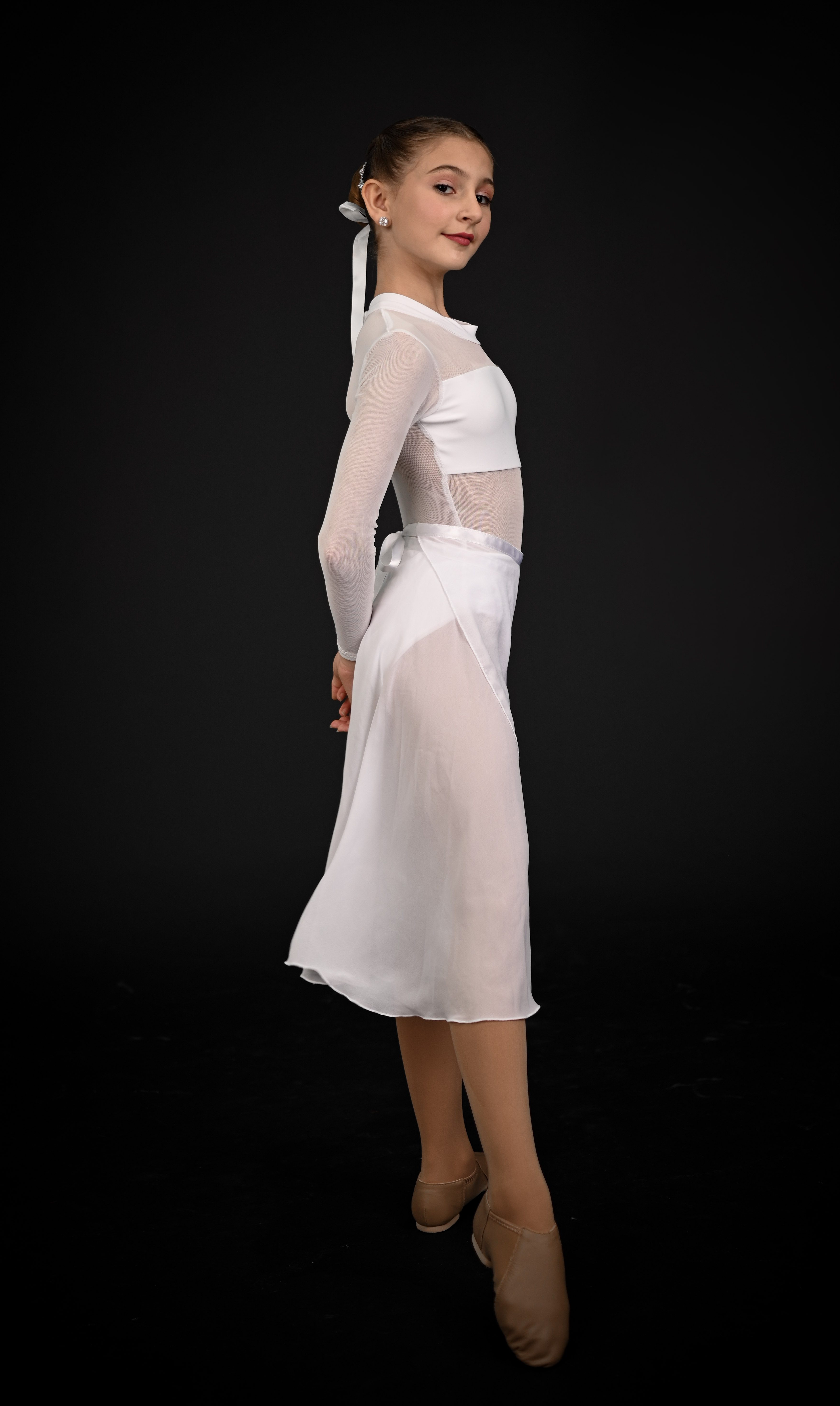

A Harmony Academy Dancer…
- Realizes that their only real competition is themselves
- Accepts corrections eagerly and takes it as a challenge
- Dances at the absolute best of their ability, all the time
- Is always prepared for class
- Practices regularly and purposefully outside of class
- Demonstrates respect for all people
- Supports and encourages their fellow dancers
Preparing for Class
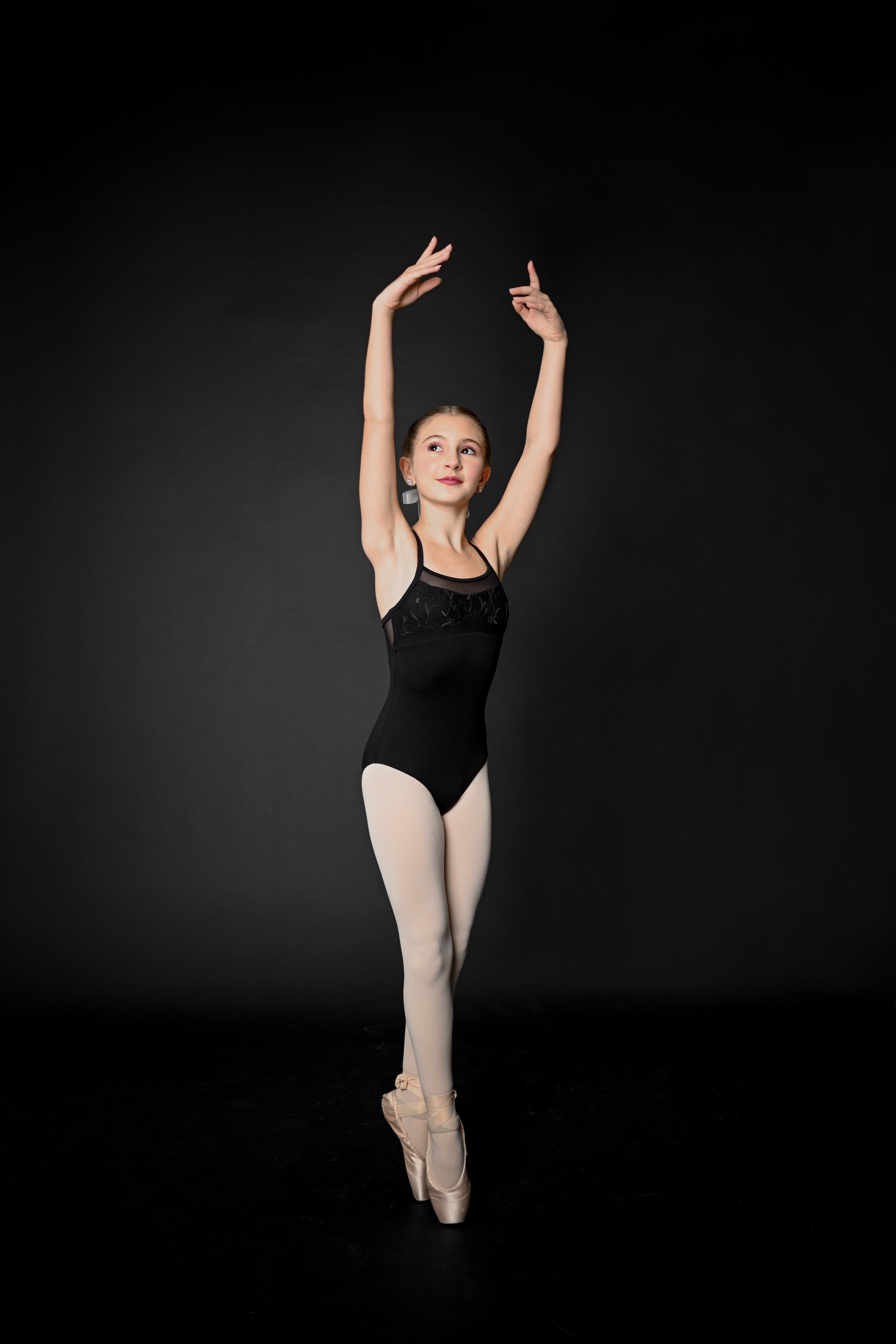

It is helpful to arrive for class early enough so that you do not need to rush to get ready. When you are full dressed and ready before class, you can give yourself a moment to relax and to focus on the lessons you learned last week, and have been practicing. Take a few minutes to clear your mind, take a small drink and use the restroom before class if needed.
Getting ready for class is YOUR responsibility. Being a dancer requires self-discipline and time management. These skills carry over into many facet’s of a dancer’s life and may help to explain the above average grades and variety of activities managed by most dancers.
For each class, did you remember:
- Clean Leotard and Tights?
- Appropriate Shoes?
- Everything needed to keep hair neat and tied back?
- Any ‘extras’ you’ve been asked to bring like hats, skirts, costume parts?
- Water bottle?
- All payments up to date?
Learning from Corrections
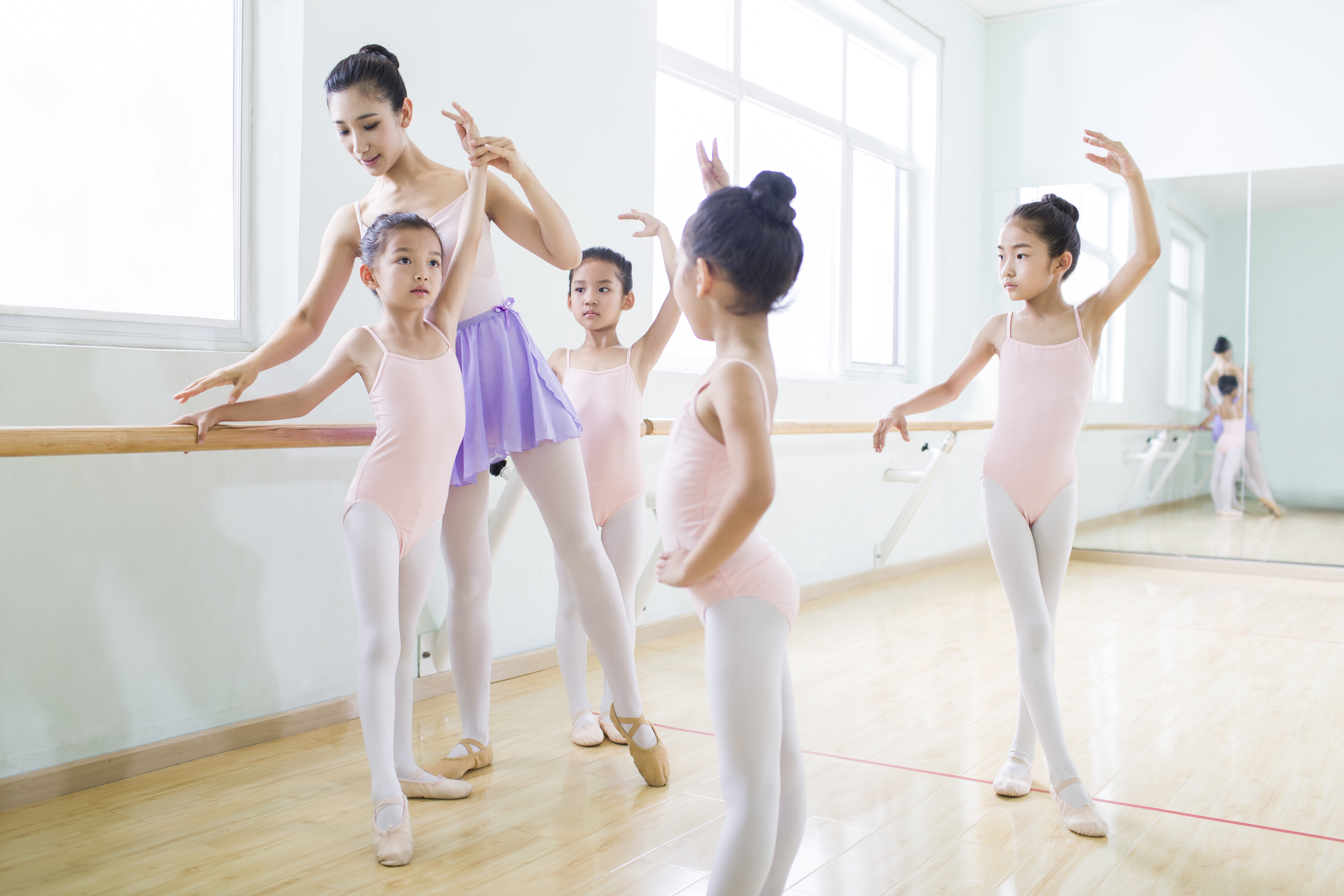

Ellen Jacob in her book “Dancing” offers this excellent passage on learning from Corrections:
Most beginners make the mistake of being afraid to make mistakes. There will be times when you are so unsure of yourself that you may be tempted to hide behind a classmate, fudge an exercise or sit it out entirely. But you cannot be noncommittal about dancing. Either you do it or you do not. If you don’t make the visible errors that come from an all-out effort, you will not get the opportunity for correction and you will not improve. There is absolutely nothing to be embarassed or apologetic about. Nobody expects you to get it right the first time. Only when you make clear mistakes can your teacher see where you need help. A correction is an indication of the teacher’s belief in your ability to progress. If you are not certain of a step, do what you think it is; that’s a definite starting point.
Much of the learning process in dance has to do with applying corrections. A teacher may correct mistakes by using verbal instructions, by demonstrating or by physically manipulating the student’s body into the proper position. You can learn from corrections, whether they are directed to you, or to another student. When the teacher corrects someone else, take the time to apply the correction to you. Are you making the same mistake? the opposite? Use the mirror. Can you feel what you have just seen? Learn to observe yourself, and others in the class. See what they are doing right and wrong, how and why, and eventually you will become your own best teacher.
“…I know that even if I put all my concentration and effort into something I want to achieve, the result is never immediate. You work on something so that some day there will be a result – but it is a long term result. When I was a younger dancer I was impatient and looked for immediate results, and I never got them. Then suddenly, after a year, there came the result of what I had done a year before”.- Natalia Makarova, ballerina
Attendance and Canceled Classes
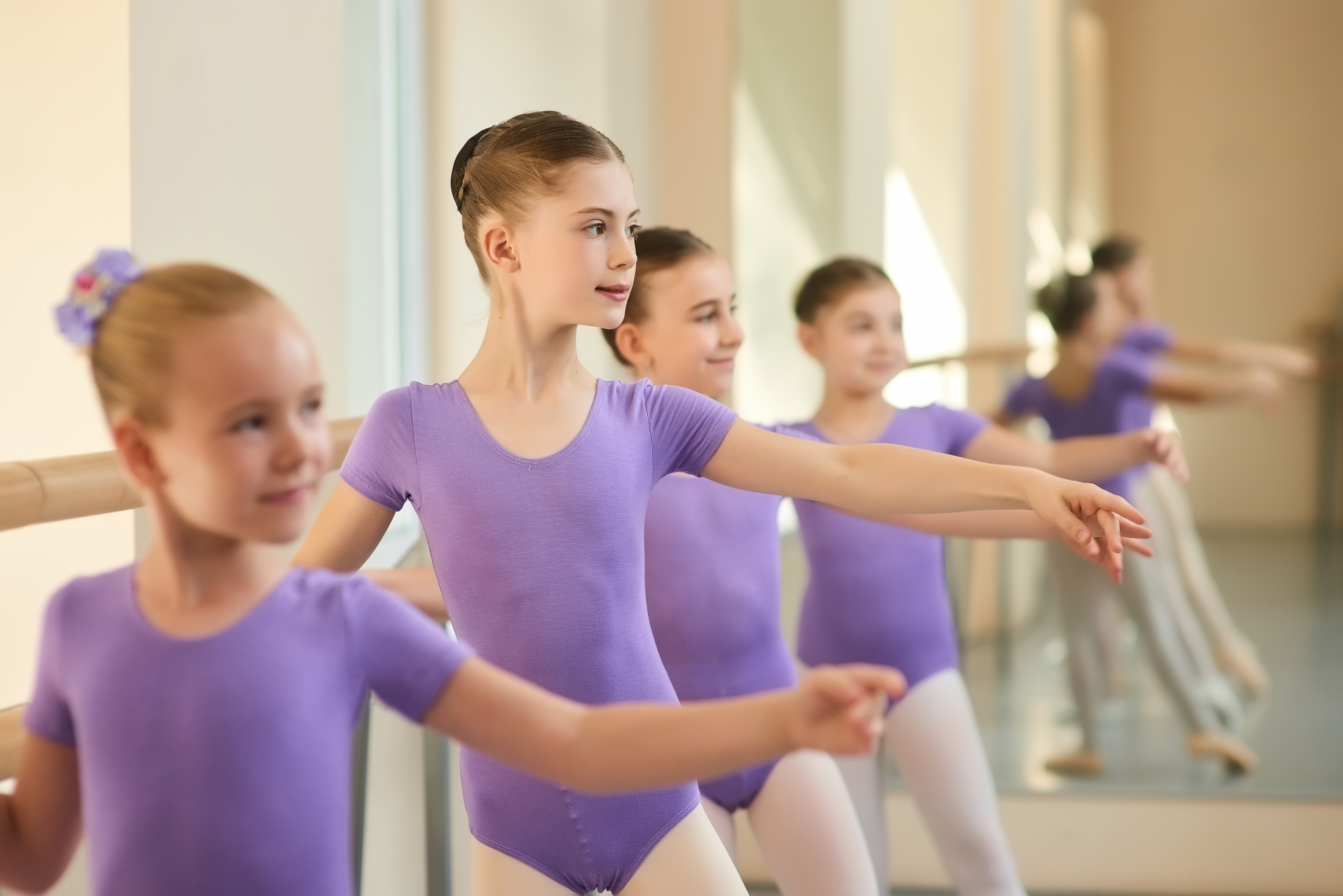

Regular attendance is essential to every dancer’s progress in class. It not only creates a regular routine for younger students but instills a sense of responsibility in older students. It is also a courtesy to the teacher and the rest of the class to ensure that the class progresses together.
If you are unable to attend a class for any reason, please notify the studio at least 24 hours in advance. If notice is provided, you are eligible to make up the class in any other class available (as appropriate). Refunds are not offered for missed classes.
On occasion, the studio may need to cancel a class due to teacher illness, inclement weather or other emergency. You will be notified as early as possible and we will offer either a makeup class or a class credit at the Director’s discretion.
Class Conduct
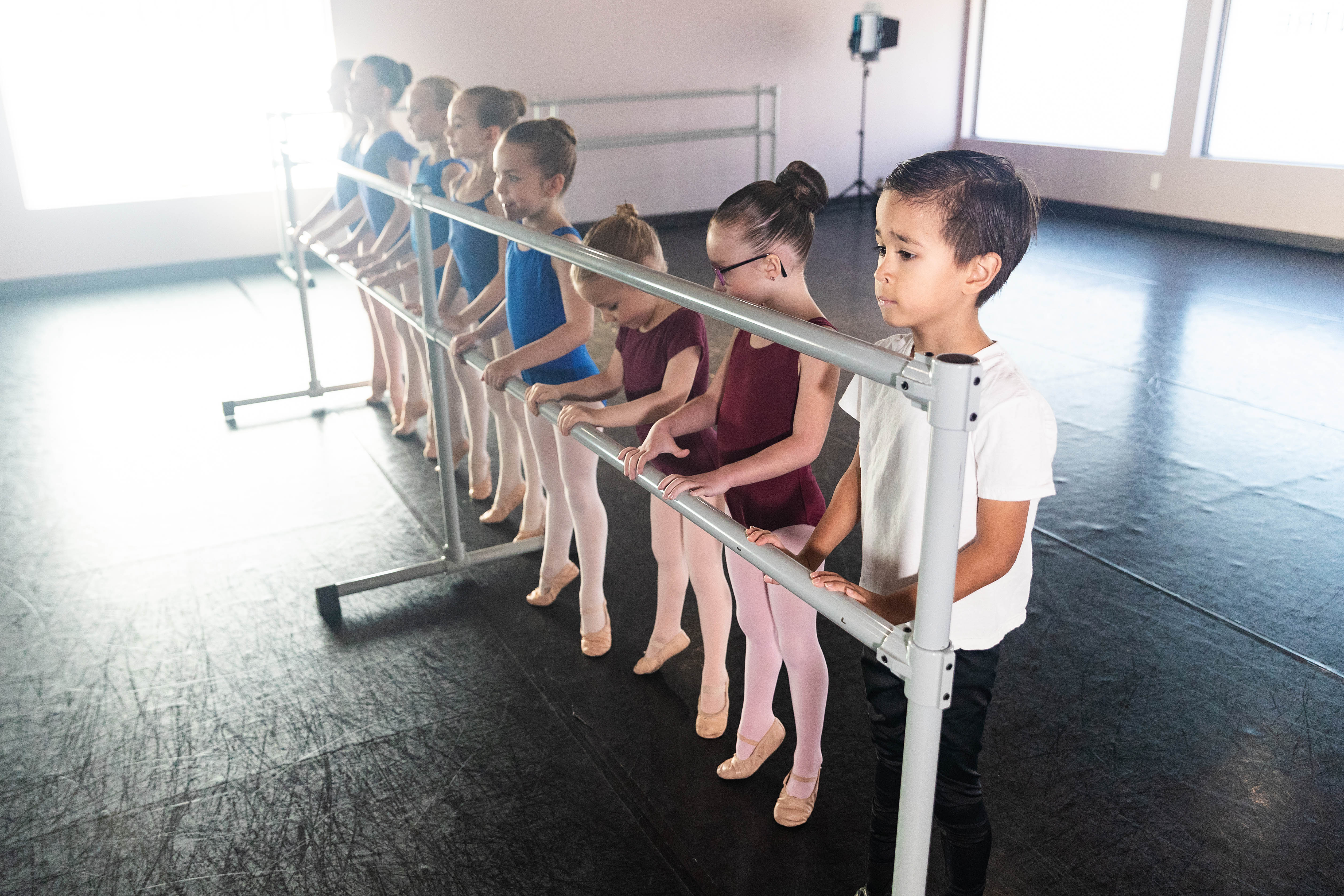

A dance class is a group activity that requires certain ground rules to ensure that you, and the other dancers in class, enjoy a safe, positive and challenging environment.
- Arrive on time and ready to dance – if you miss the warm up you may not be physically or mentally ready to dance and could increase the risk of injury
- Focus on the teacher and the lesson – If you chat with your neighbor you may miss important instructions or distract the class
- Be aware of your neighbors when moving – An important part of dancing is understanding your space and maintaining an awareness of the space around you. Bumping into others is dangerous, distracting and annoying.
- Maintain proper spacing – When in line or traveling, maintain the proper spacing to other dancers. If you’re in a moving line, keep moving at the right pace.
- Don’t just follow along – It can be tempting to mimic the movements of a class leader, class helper or your other classmates. If you get overdependent on following others, you will miss the opportunity to become your own leader and will be in trouble when the person you’re following isn’t htere, or you can’t see them (like on stage!)
- Additional Class Rules
- No chewing gum or candy in class
- No food or drink permitted on the studio floors
- No running in the studio unless directed to do so
- If you have to walk through a class in progress, walk around the outside of the room away from the teacher
- Respect your fellow dancers (all dancers – not just your studio)
- Respect the studio and studio property
Health & Safety
COVID-19 & Other Illnesses


We take the health of our Dancers very seriously. We want all of our dancers to be safe and healthy! If you have tested positive for COVID-19, or have been exposed, please do not return to class until you receive two successive negative tests and do not have a fever. Similarly, if you have any other contagious disease, such as the flu, please stay home until your fever has subsided. We also recommend the following at all times to reduce the spread of disease: Wash your hands frequently with soap and water for at least 20 seconds, avoid touching your eyes, nose or mouth with unwashed hands and consider wearing a face covering in crowded spaces where social distancing is not possible.
Nutrition
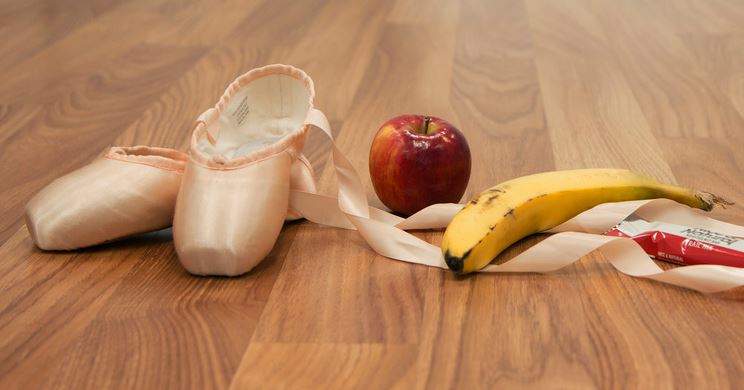

Dancing is a demanding physical activity that requires a well-nourished body. Sound nutrition helps to reduce the risk of injury, increases endurance and builds strength. You should follow a healthy, well-balanced diet on the days you are dancing as well as the days you are not.
If you have any questions regarding your nutrition or health, please see your teacher or the studio director. We are here to help and can direct you to additional resources.
Injuries


Like any other challenging physical activity, some discomfort may be experienced from time to time but if you experience persistent, sudden or severe pain please stop dancing immediately. and let your teacher know. We would much rather you sat out part or all of class and seek appropriate medical attention than risk injury.
Consent for Medical Treatment


By participating in classes or performances, you hereby give permission for Harmony Dance Academy LLC., its employees and/or assigned to administer medical treatment as they deem fit in the event of injury or other medical emergency involving the student. You understand that medical treatment could entail hospitalization, administration of first aid or any other treatment deemed necessary by Harmony Dance Academy LLC., its employees or assigned. Although the Academy will make every effort to contact you and/or the emergency contact prior to administration of medical treatment, You understand that this is not always possible or practical. You agree to hold Harmony Dance Academy LLC. harmless from any harm or damage resulting in any way from the administration of medical treatment, or lack thereof.
For the Parent or Guardian . . .
Class Placement & Promotion
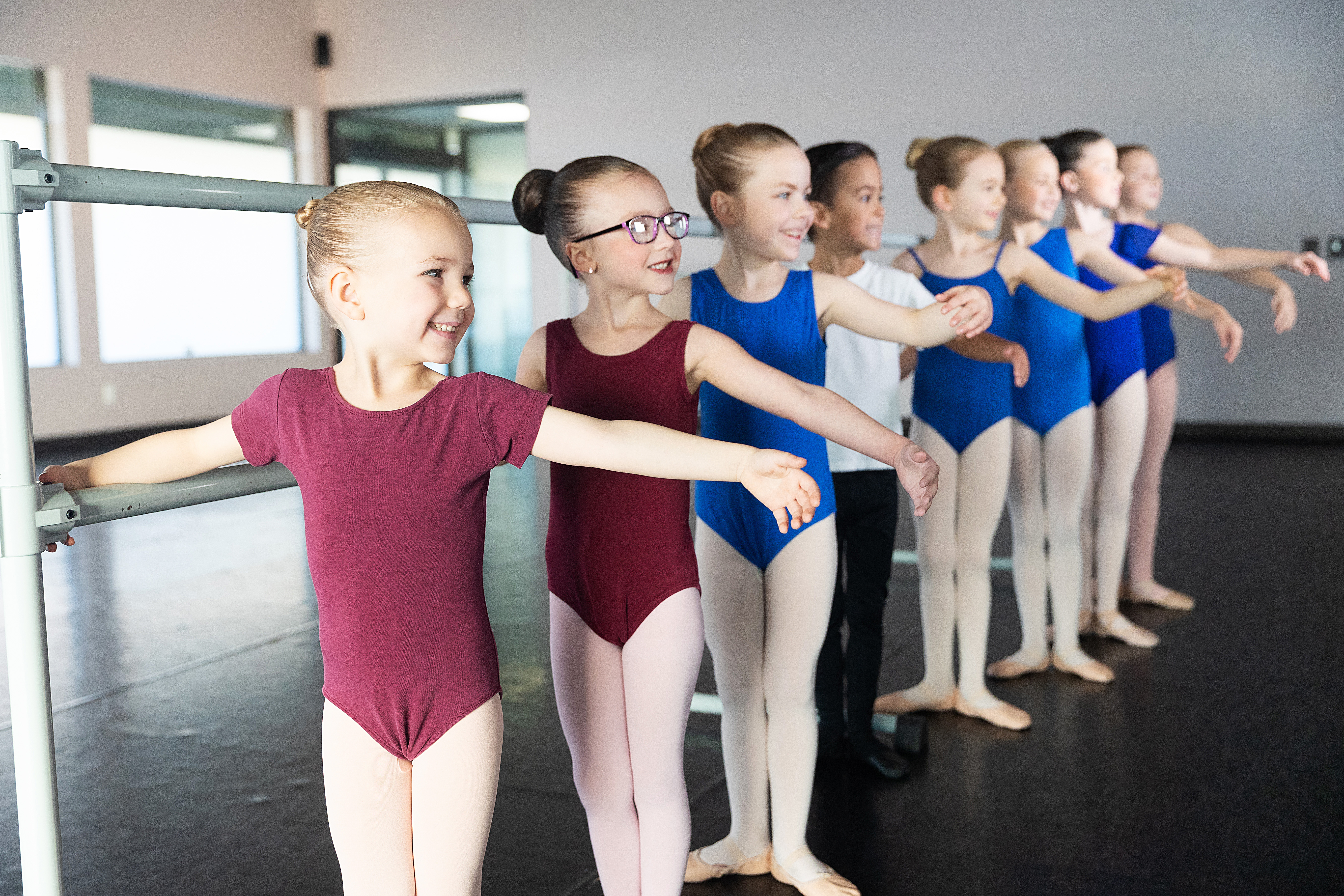

Placement into classes is based on age, experience, ability and other factors and is at the sole discretion of the Director. New students joining the academy may be asked to audition for placement if they are experienced dancers or wish to join the company teams. There is never an audition for acceptance into the Academy. All those who want to dance are welcome!
Please note that dance levels may differ widely between different studios and our goal is to place dancers correctly into class so that you can progress as quickly, and safely, as you can.
Years of experience have taught your teachers and Director to support your development by placement into the correct class. They are also skilled at accommodating different skill levels within the same class. Trust their judgement!
Preparing for Class
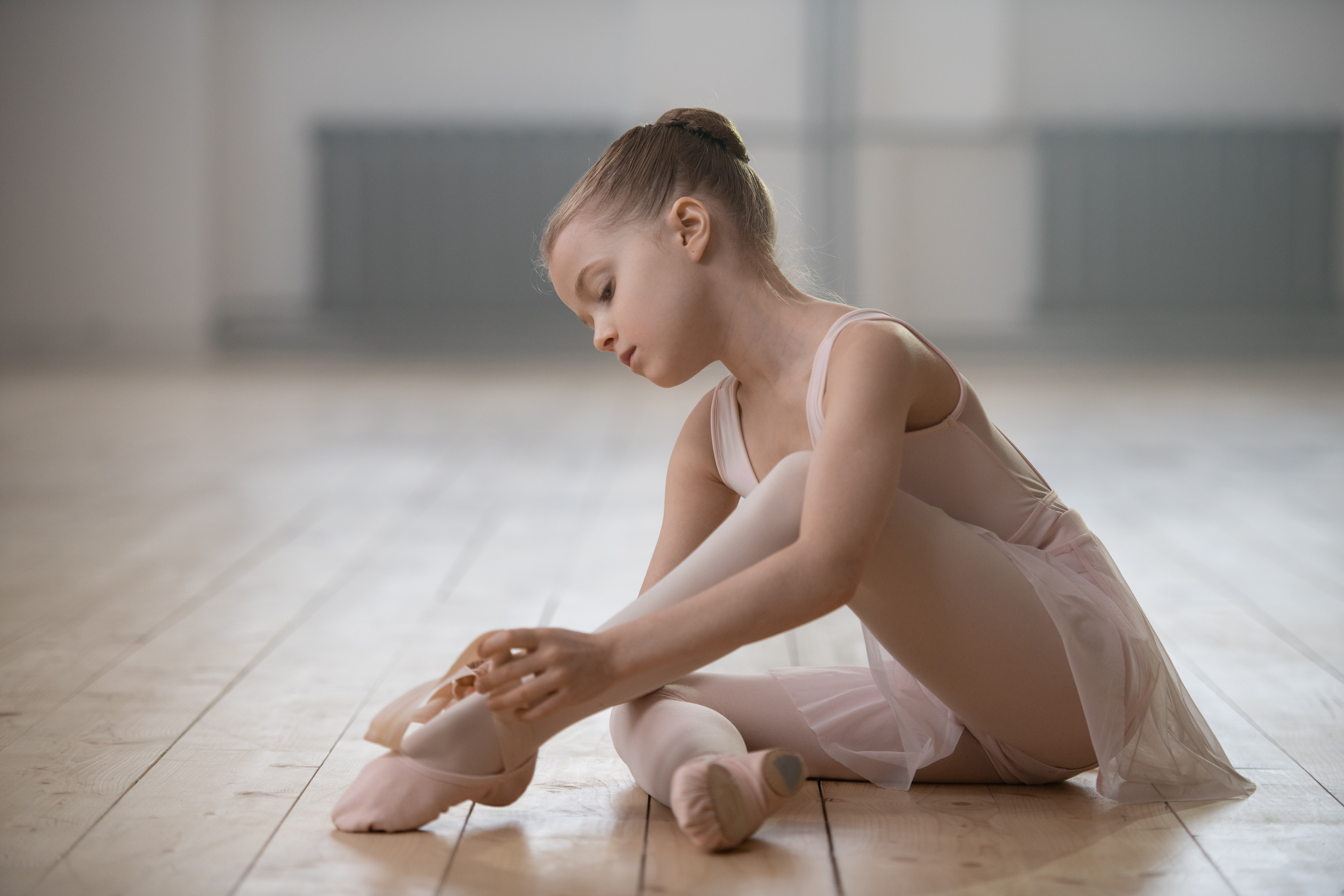

Occassionally, a dancer will complain that they “don’t want to go to dance class” but when they arrive they have a wonderful time in class. This may be due to interrupting an enjoyable activity to come to class. Although the enjoy class, they do not want to stop what they are doing to go. We recommend setting a regular routine so that they are not engaged in a fun activity when it is time for class, and that they have adequate time to get ready. We don’t recommend using dance class as a punishment. When your dancer loves dance class it may be tempting to say “finish your homework or you can’t go to class” (or similar) but this could result in your dancer losing interest in dance class and thus deprive them of a positive activity which may help with achievement and behavior.
Pick Up & Drop Off


To help ensure the safety of your dancer and the smooth operation of the studio, we must enforce the following rules regarding pick up and drop off:
- Please arrive for class on time
- Do not drop off your dancer more than 15 minutes before class
- All children must wait in the lobby unless permission is given to wait outside
- Pick up no more than 10 minutes after class
- You must let us know in advance if someone other than parent/legal guardian will be picking up
Parent Observation
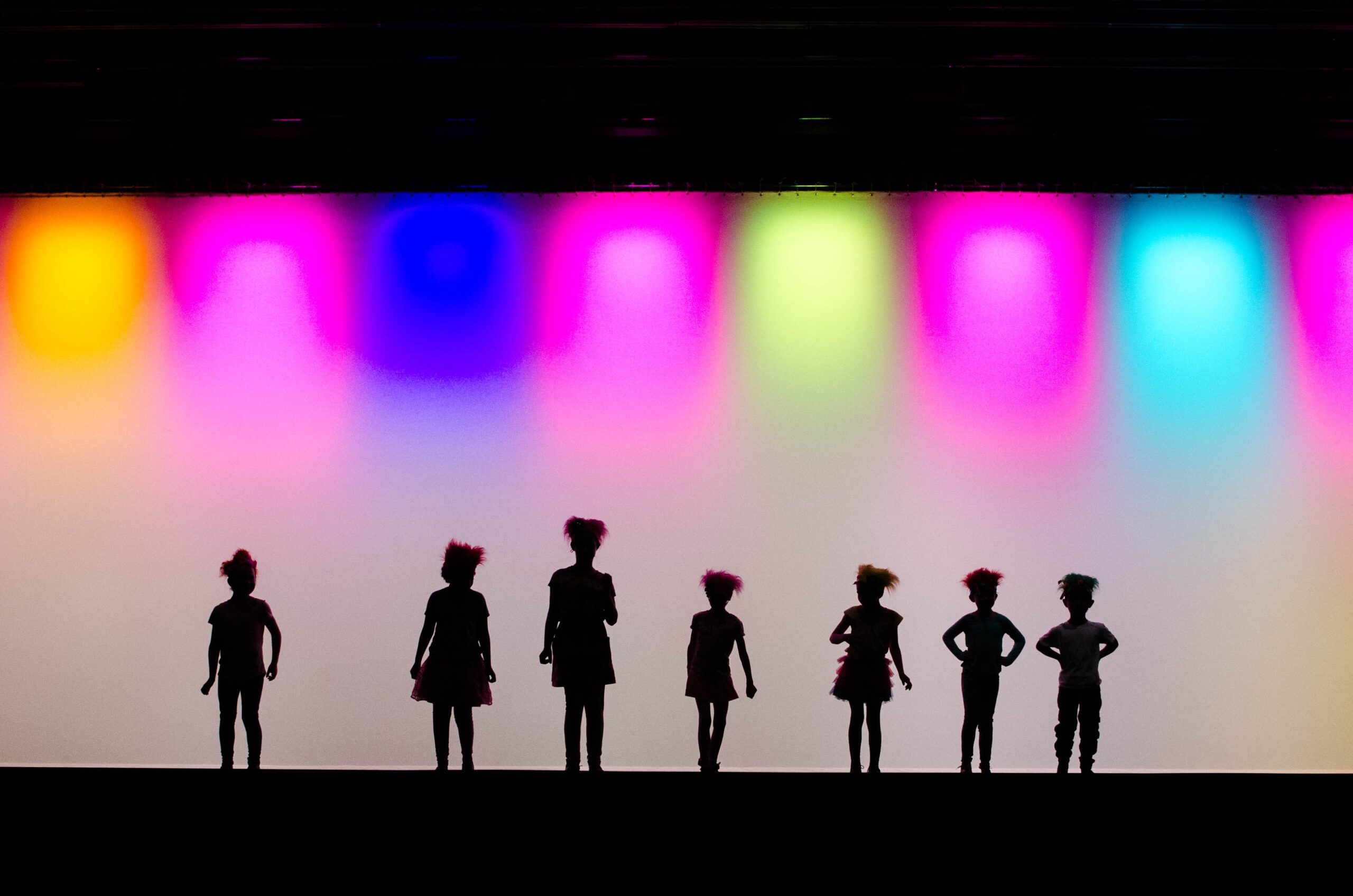

We try to balance the needs and concerns of our families wanting to watch classes with the need to provide a distraction free environment for our dancers that is conducive to fun and learning. We have found that in almost all cases, the dancers (especially our younger dancers) are more relaxed, learn more quickly, and perform much better when the parents are out of the room.
Our classes in Studio Room 1( which are most of our youngest classes) are viewable from the lobby window. Assuming we do not experience any problems, we will leave the glass uncovered so that parents can take turns watching. All that we ask is that if you notice your child frequently watching you at the window that you refrain from watching for a while to allow them to refocus their attention on the teacher in the studio room.
We hold regular parent observation days for all of our classes. These are usually scheduled about every 8-12 weeks. The dates will be posted at the academy in the lobby and on the website and Google Calendar. You are welcome to attend the class with your child to observe and take photos or video. We ask that you limit the number of attendees and please note that contingent on the Covid-19 guidelines, parent observation may be delayed or suspended. In this case, we will provide a video of your dancers class for you to view from home!
Classes during parent observation days will end about 15 minutes early so that you may speak with the teacher about any questions, comments, or concerns that you may have without the instructor having to rush right to the next class.
Performances
Recital
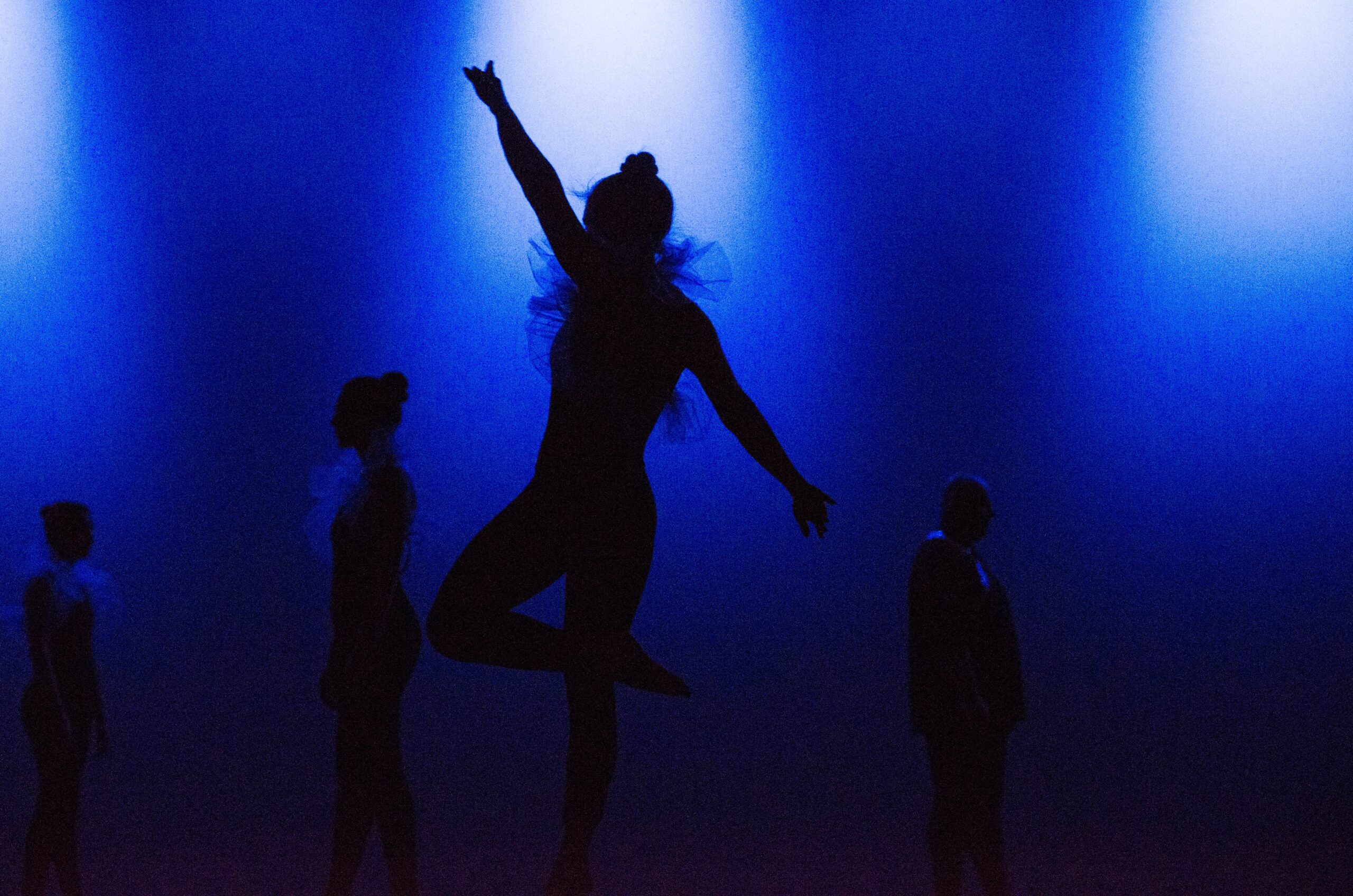

Dance is a Performance Art; only part of which can be learned in the classroom. Student performances not only give dancers the thrill and challenge of performing, but also a strong sense of accomplishment with a chance to showcase their talent for family and friends.
Our annual recital is the primary performance for dancers and is held in late May/early June each year (based on venue availability). Our recitals are a full professional production in full costume designed to be a positive, experience for everyone that reinforces the self-esteem and positive self-image of our dancers.
Parents will have the opportunity to help support the recital (and other performances) through our non-profit Harmony Dance Foundation including fundraising and other support.
We treat our recital more like a show than a ‘typical’ dance recital. We utilize professional lighting and sound and typically maintain a fast-paced production with little break between consecutive numbers. Several numbers may be combined into larger sections and some dancers may be given the opportunity to additional solos/duos/trios (by audition only at Director’s discretion).
Our theme is more than a collection of loosely related songs. It is the driving force to determine the entire narrative of the performance. The theme determines the order and tempo of numbers and influences props, scenery, costumes and decoration. Our goal is to create a show that is as enjoyable to watch as it is to perform.
We control the length of the show and, if needed, will add additional shows rather than extend the time beyond an enjoyable length. More details about the recital will be released in September.
We typically hold multiple rehearsals before recital and these are included in your regular tuition. Costume requirements vary by class and more details will be provided as soon as available.
Public Performances
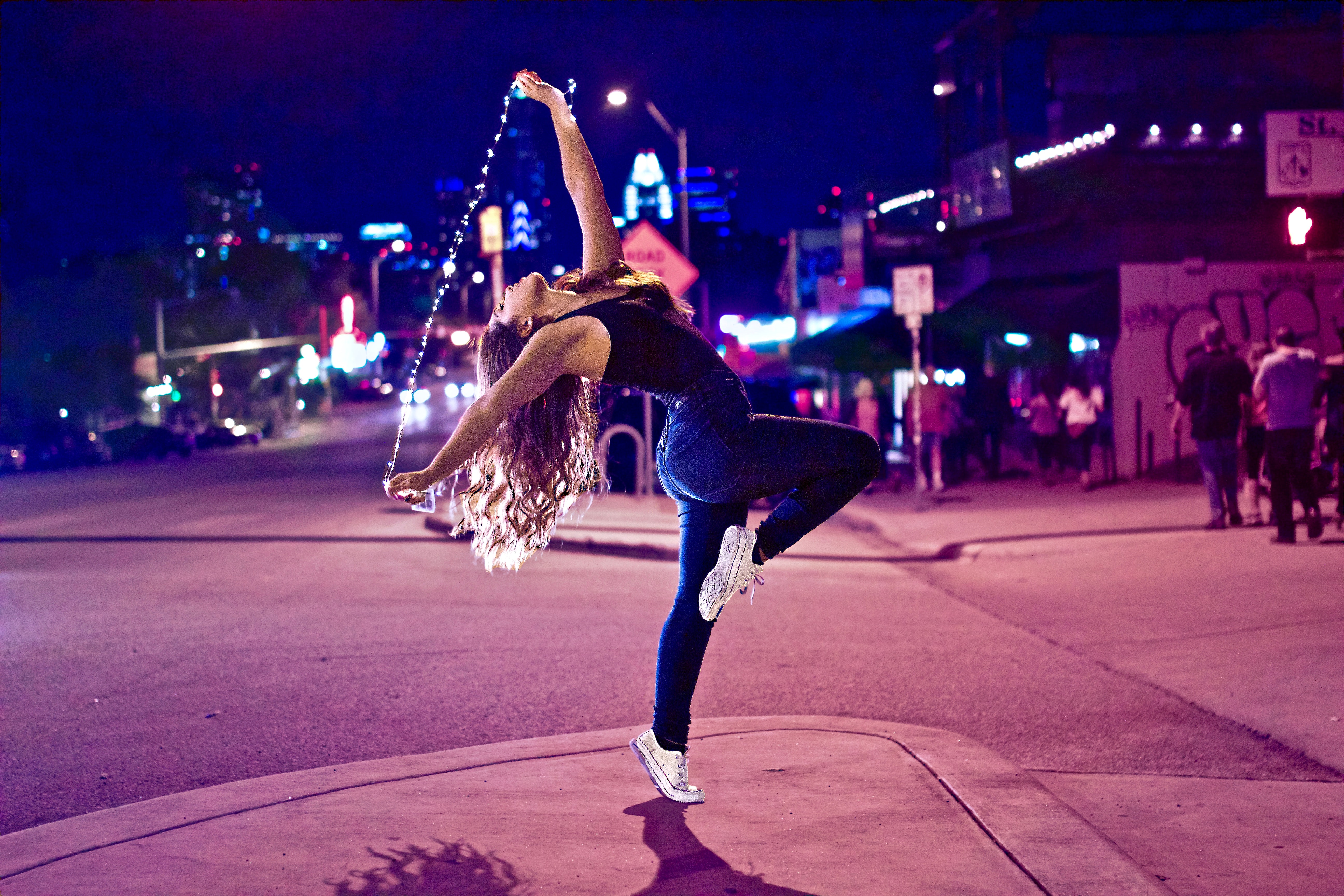

Harmony Dance Academy strives to bring joy through dance to both our dance family and the broader community through our non-profit foundation. From time to time we expect to participate in various shows and public performances and you may be invited to participate.
Due to our association with Weston Town Center, we expect to participate in the Halloween, Holiday and Easter festivities at a minimum during the year.
All dancers, whether performing or not, are expected to conduct themselves consistent with the ideals of Harmony Dance Academy.
Competitions
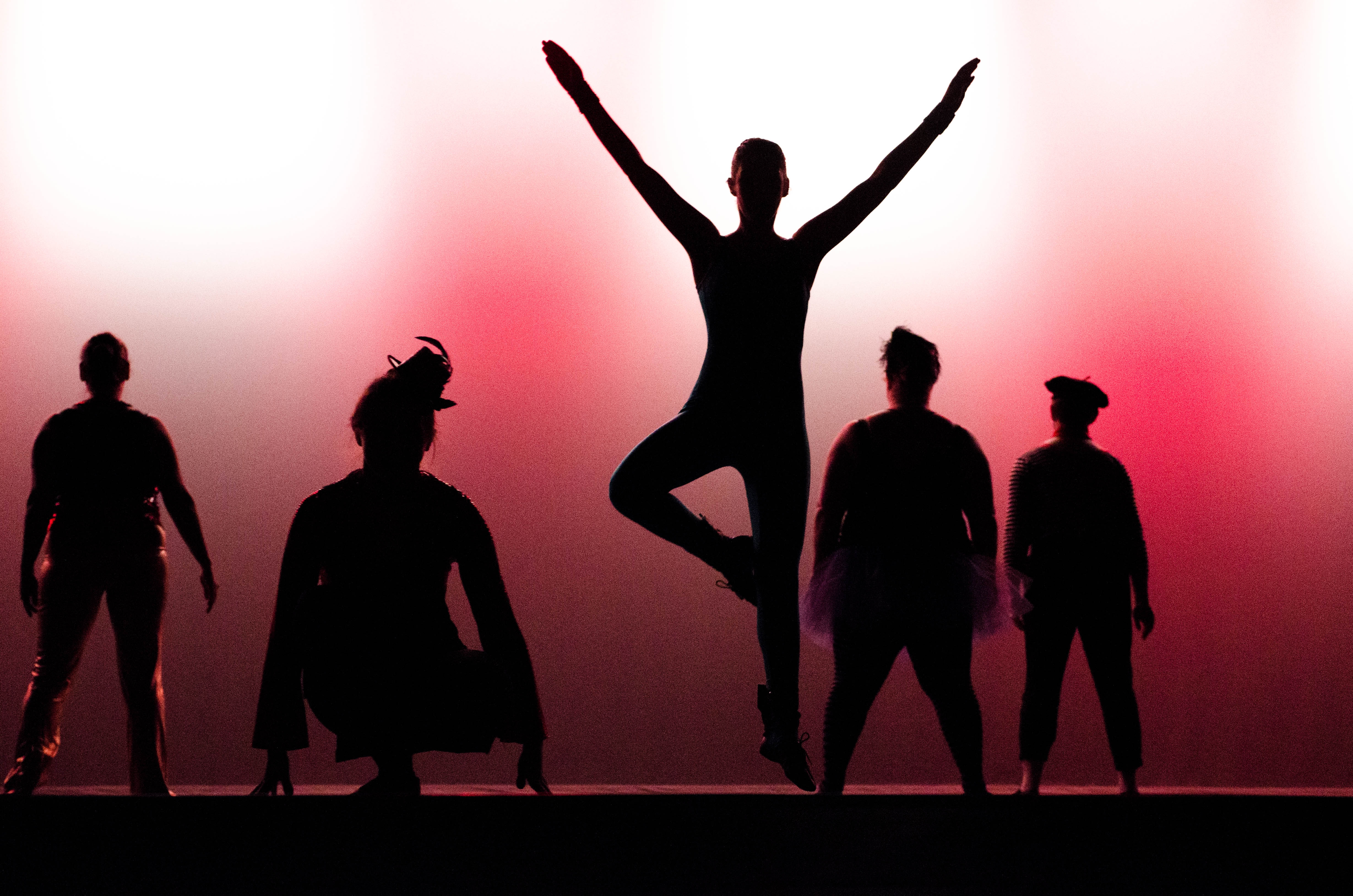

The Harmony Elite Company is eligible to compete in competitions to further advance their development. Participation in competitions is solely at the discretion of the director. While we strive to develop dedicated dancers at the highest level, our competition is always ourselves. We compete to learn and advance through judgement and always maintain respect for our fellow dancers.
Additional information on Company requirements and costs are available upon request.
Travel & Conventions


Harmony Dance Academy also supports dancer advancement through participation in dance conventions and an annual trip. Conventions are held by various dance organizations and feature educational content that exposes dancers to a wide variety of guest teachers and styles.
Our annual trip is designed to build teamwork while also exposing dancers to dance opportunities outside of our local area. In the past, In the past, Victoria has taken her dancers to perform during the halftime show of college football games, in Thanksgiving Day parades and to New York City to see Broadway shows and take classes at Broadway Dance Center.
Harmony Dance Foundation


The Harmony Dance Foundation is our non-profit organization that supports dance performances for our dancers and our community. The foundation supports our dancers through fundraising, solicitation of donations and management of our performance opportunities. Parents of our dancers are eligible to join and help support our dancers!
Financial Responsibilities
Tuition & Fees


All charges are per family:
Accepted Payments
- All dancers are required to have a credit card on file for automatic payments.
- If you want to pay by a different method (cash, check, Zello, Venmo, etc.) you must pay at least one week before the 1st of the month to avoid being charged to your credit card.
- Dancers will have options to fundraise to offset part of the cost if desired
- Tuition is based on an annual rate that is broken into 10 convenient monthly payments. Registration Fees are annual.
Registration and Fees
- Registration Fee: $60 for the first dancer, $40 for each additional dancer
- Late Fees: 10% if not paid by the second week of the month.
- Returned Payment: If a payment is returned/rejected a $30 fee may be applied
Tuition
- Dance Class Tuition: $85/month for the first class, $70 for each additional class
- Elite Company Tuition: $250/month for mini team, $350 for all other teams. Includes unlimited classes, competition eligibility and more
- Ballroom Class Tuition: $250/month for 2 classes per week, $300/month for 3 classes per week, $120/month for the stretching class
- Master Classes: Master Classes may be offered from time to time at a separate, optional, cost.
- Camp, Intensives and Other Classes may be offered at different prices.
Performances
- Recital Costume: $90 for the first costume, $70 for each additional costume
- Solos/Duos/Trios: Determined in consultation between the teacher and dancer(s).
- Competition Costumes: Competition costumes vary in price and will be shared with parents/dancers when determined.
- Tickets: Ticket prices are determined in consulation with the Harmony Dance Foundation based on the costs of the recital perfromance.
- Competition and Convention Fees: Vary by event.
